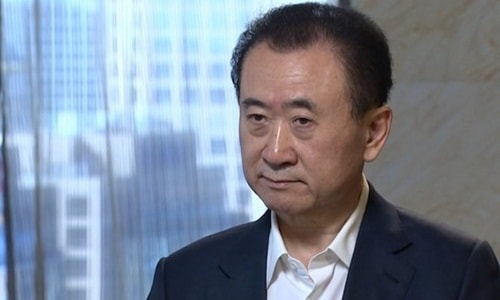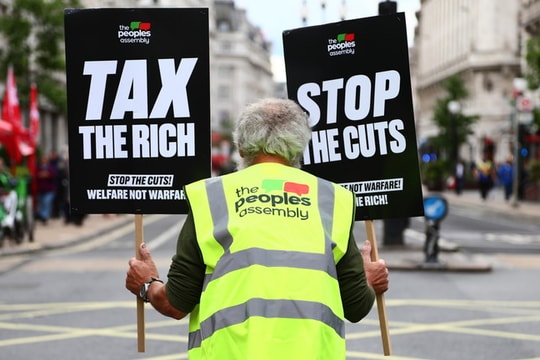China's top billionaire 'threatens' Donald Trump
Real estate and entertainment tycoon Wang Jianlin said: "I have invested 10 billion USD and created 20,000 jobs in the US. These 20,000 people could lose their jobs if something bad happens."
In recent years, Wang's company, Dalian Wanda, has made a series of acquisitions in Hollywood. He said he will continue to invest heavily in the US. Wang is currently the richest person in China with a fortune of 31.6 billion USD, according to Forbes.
However, Wang's growing influence is worrying many US lawmakers, who regularly call for closer government oversight of deals like this.
At an event in Beijing last weekend, Wang dismissed concerns from the US Congress and warned Donald Trump of the consequences if he was prevented from buying US companies.
"I met with the president of the Motion Picture Association of America (MPAA). He said he was going to meet with Mr. Trump and asked if I had anything to say. I said I had invested $10 billion and created 20,000 jobs in the United States. Those 20,000 people could lose their jobs if something bad happened."
 |
| Wang Jianlin wants to buy more American companies. Photo: CNN |
Wang's collection of American entertainment companies now includes the AMC Theaters chain, Legendary Entertainment and, more recently, Dick Clark Productions. In September, he told CNN that he wanted to buy one of the six biggest Hollywood studios.
Still, Wang said at the same event last week that the US Congress's opposition was just one of many. "I think we need to wait until Trump takes office to see what his attitude toward Chinese entertainment companies will be," he said, adding that Trump "needs to understand" that Hollywood films rely on the Chinese market for growth.
Mr. Trump’s stance on Chinese investment in the United States is unclear. His campaign focused largely on trade with goods made in both countries. He accused the Chinese of taking American jobs and not playing by the rules. Mr. Trump threatened to impose tariffs of up to 45% on Chinese goods entering the United States, raising the risk of a trade war.
According to VNE








